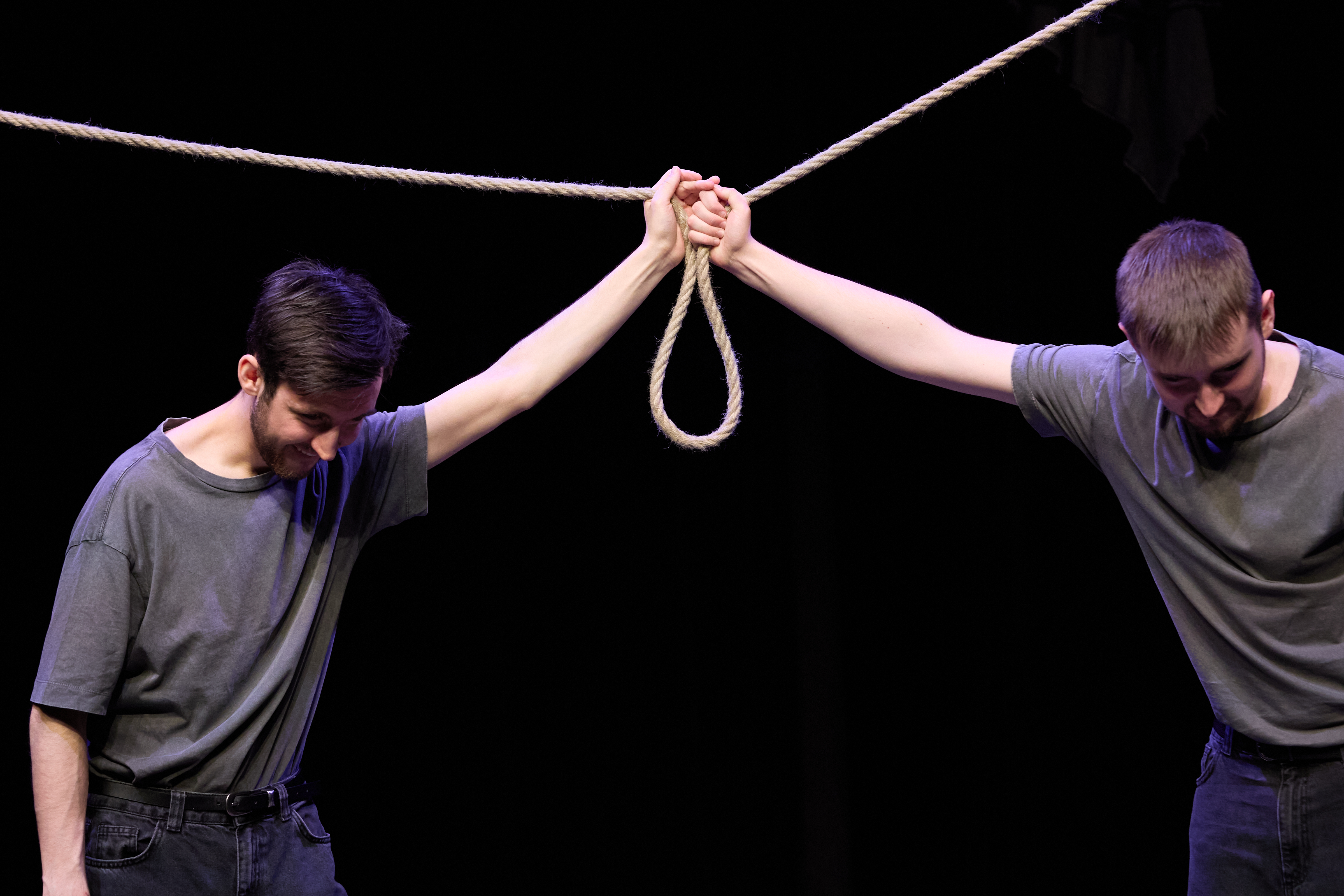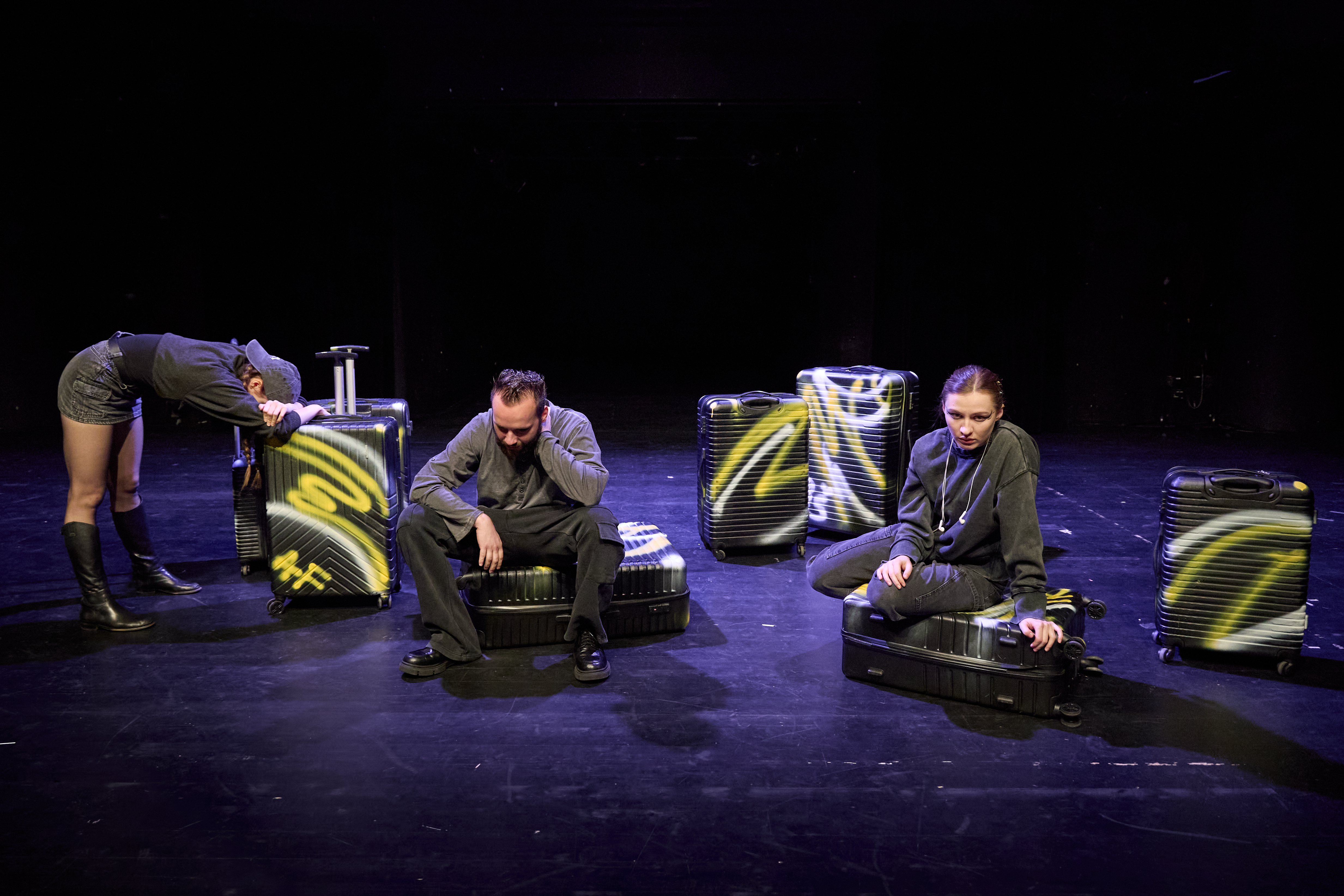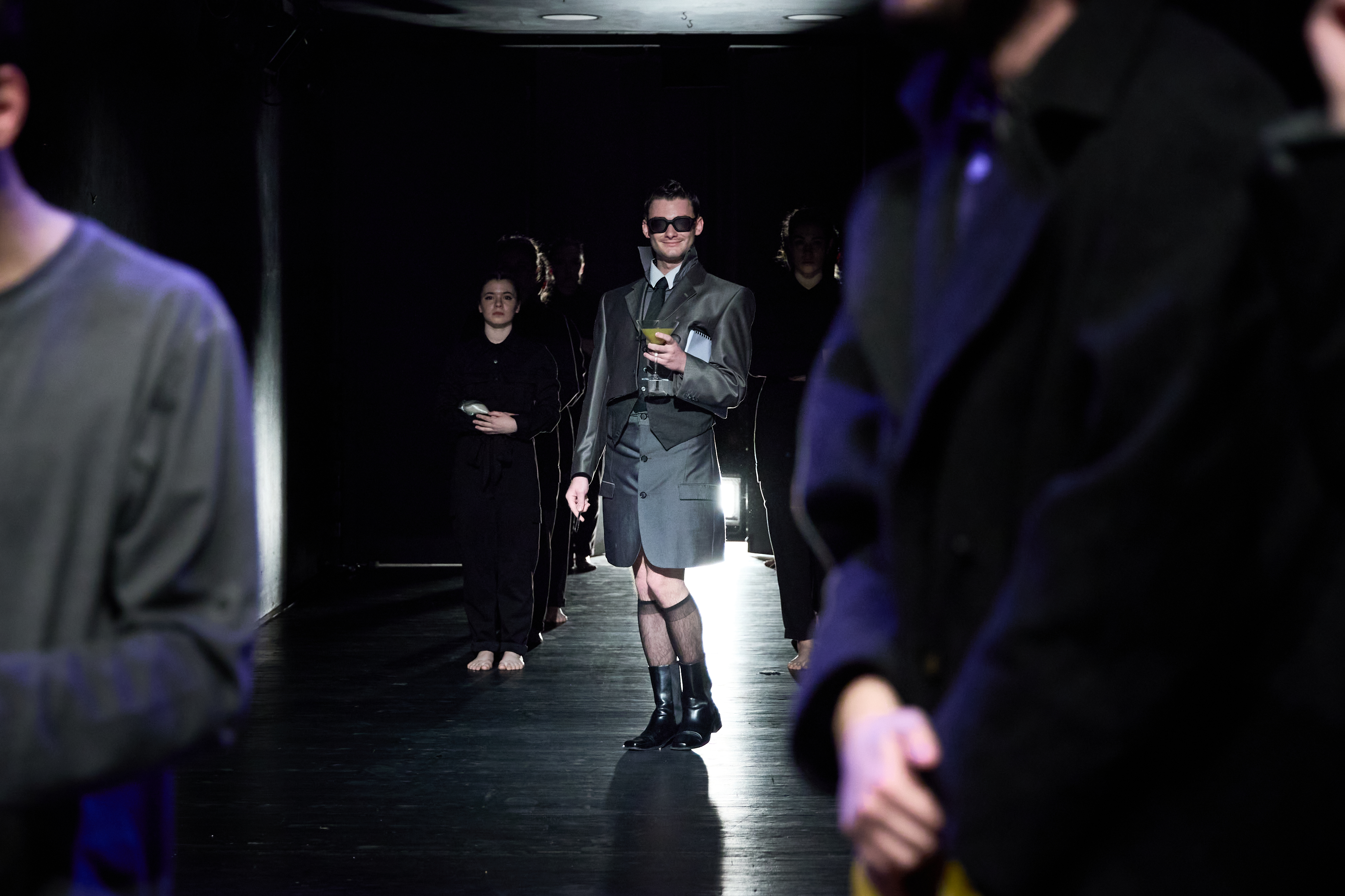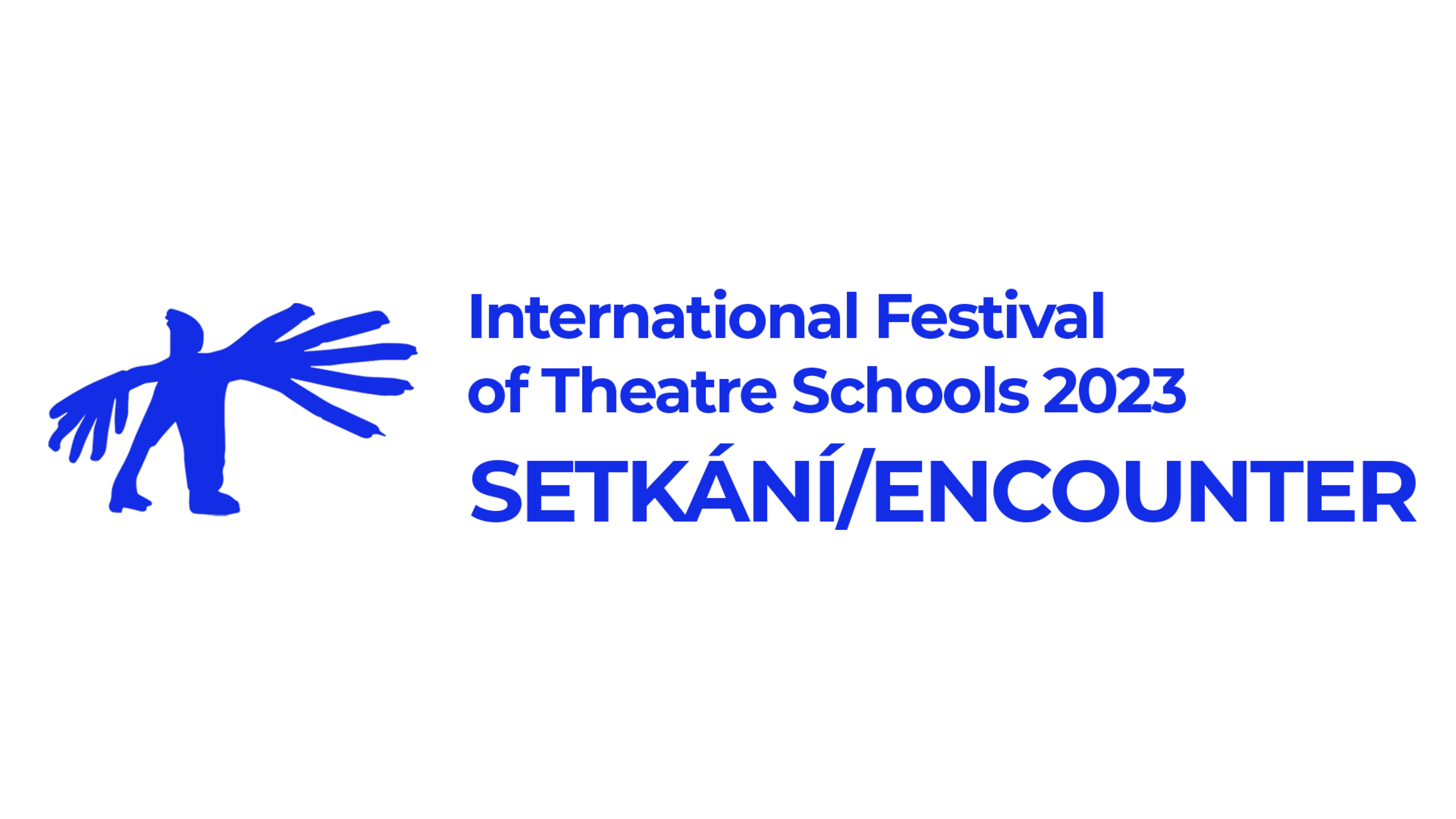
A Slovak Circle in the Georgian landscape
The third day of the Encounter Festival began with the performance of Caucasian Chalk Circle by the students of the Theatre Faculty of the Academy of Performing Arts in Bratislava. The production, based on a text by German playwright Bertolt Brecht, reflects the author's epic theatrical style, i.e. a complicated plot, musical elements, breaking the fourth wall, and strong allusions to today's politics.
A distinctive and hilarious element of the show is the presentation of a varied and multi-layered plot through simple set design. The space is primarily made up of several black suitcases painted white and yellow, which correspond with the simple three-colour palette that unites the entire production. Another ingenious solution is to draw a chalk circle on the stage (in reference to the title of the play) and to make it increasingly distracting during the performance. In this way, the final scenes seem to take place on a natural expanse of the Georgian landscape.
Another great strength of the Caucasian Chalk Circle is the excellent work with space and the actors who are present in the centre of the stage, on the sides, on top, in the background behind the stage, and even in the air. Their position changes frequently. All of this makes for a punchy and dynamic production of this show on the relatively small stage of the HaDivadlo. The commitment of the actors is also worth appreciating, as they devote themselves carefully to their roles, living the emotions of their characters in a believable way. However, some scenes are played too grotesquely, which hindered the experience of the play. Even in those moments, however, the acting was excellent.
The actors' intense movement and rapid enunciation of lines made it difficult for me to understand the complex story. Watching it over the course of a two-hour production can therefore be tiring for the viewer, and this is probably the biggest problem with this production. On the other hand, we can conclude that the most important element of this play lies somewhere else, namely in the narrative value of the whole piece. And that came across quite convincingly.
I mentioned politics at the beginning. It comes up at least twice in the production. One of the characters mentions, for example, the death of the Minister of Culture, which is obviously an allusion to the current political situation in Slovakia (an important topic for the company putting on the show). Even more impressive, however, was its conclusion, in which there is a personal statement by the actors, who leave the characters they portray behind and directly express (at least according to the intention of the production) their critical opinion on the direction (nomen omen) of the current Slovak government. In a twist, however, the actors also turn against Brecht's play itself, accusing it of being propaganda. I find such an ending very interesting. If we acknowledge that in theatre we need to surprise the audience with something, in this case it was 100% successful.


